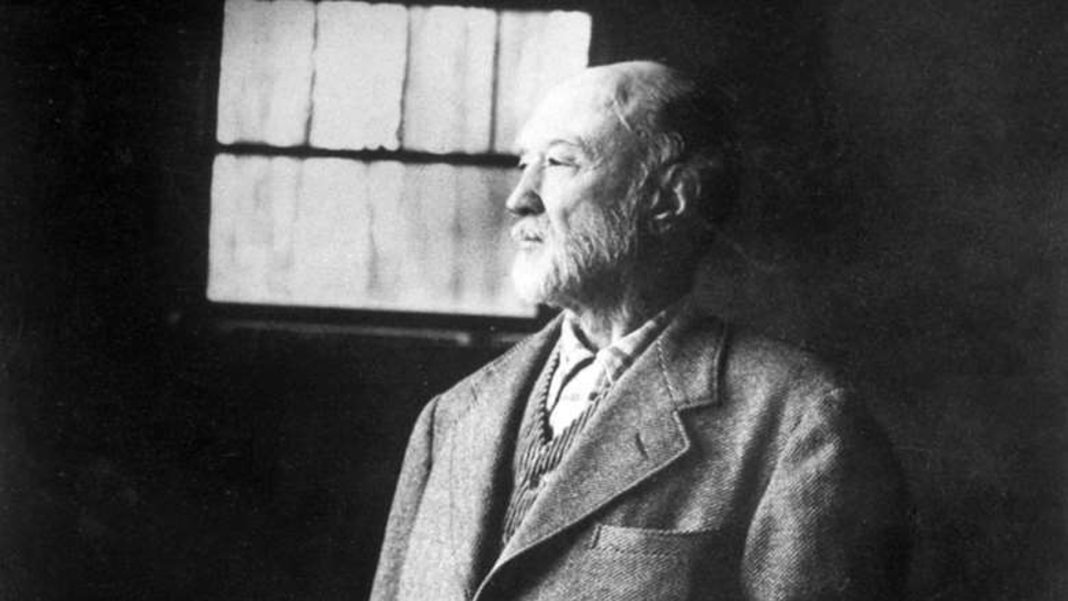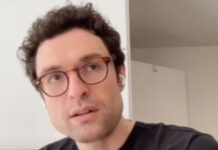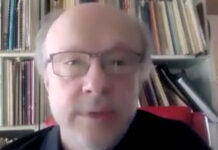There are probably not too many symphony orchestras that pair the work of Czech composer AntonÃn Dvořák and American composer Charles Ives. That there aren’t makes this ten-day series of concerts by the Los Angeles Philharmonic utterly intriguing. Gustavo Dudamel, the mastermind of these pairings, will lead all seven concerts.
Ives wrote four symphonies. Dvořák wrote nine. For these concerts Dudamel pairs Ives symphonies with the last three of those written by Dvořák (the most popular being his 9th.)
The series begins on February 20th with two performances of Symphony No. 1  by Ives with Dvořák’s 7th Symphony. Each symphony has four movements and they both run less than 40 minutes.
Ives composed his first symphony as an exercise for his composition teacher at Yale. The work is often compared to Dvořák’s 9th Symphony which premiered one year earlier.
Dvořák’s 7th had its world premiere in 1885 in London. The composer’s three late symphonies are considered his masterworks.
Beginning February 22nd (again for two performances) Dvořák’s 8th Symphony (composed in 1889) is paired with the Symphony No. 2 by Ives (composed between 1897-1902).
It took nearly 50 years for Ives’ second symphony to have its world premiere. Leonard Bernstein, leading the New York Philharmonic, gave the first performance of the work in 1951. Bernstein was a huge advocate of Ives and his work.
Ives was well-known for interpolating (or less politely, borrowing) the themes from other compositions into his work. That practice began with this symphony where strands from Columbia the Gem of the Ocean, Turkey in the Straw and Camptown Races can all be heard.
Dvořák conducted the world premiere of the 8th Symphony in Prague in 1890. Just as Ives was inspired by American themes, Dvořák was inspired by Czechoslovakian folk themes. Of all of Dvořák’s symphonies, this is, by far, my personal favorite.
Next week the series continues with one performance of Symphony No. 3 (“The Camp Meeting”) by  Ives and Dvořák’s enormously popular Symphony No. 9 (“From the New World.”)
Once again Ives had to wait for his work to have its premiere. Though written in 1904 (with additional work from 1908-1911), Symphony No. 3 did not get performed until 1946 when Lou Harrison lead the New York Little Symphony in a performance. Ives was awarded the Pulitzer Prize for this work.
Dvořák’s Symphony No. 9 is one of the most widely-embraced of all symphonies. The program for these Los Angeles Philharmonic performances begins its description with “Has there ever been a work so beloved, so recognized, and yet so impossible to give a fair hearing as the ‘New World’ Symphony?”
To which my response would be, “Why?” It has a lovely theme which you better love. Because you will hear it and variations of it for the next 40 minutes. (Yes, I’m aware this is an over-simplification). Dvořák wrote this symphony in 1892-1893. The work had its premiere in New York in 1893.
Of course, if anyone can convince me that this work is more than its repeated theme, it would be Dudamel with this orchestra.
This concert, and the two that follow, will open with The Unanswered Questions, a six-minute work by Ives.
The final concerts are on February 28th and 29th when Dvořák’s Symphony No. 9 is paired with the Symphony No. 4 by Ives.
Though only 30 minutes in length, Symphony No. 4 is one of the larger works written by Ives. Joining the LA Phil for this work will be the Los Angeles Master Chorale.
Ives wrote this symphony over a period of time ranging from 1910-1925. Though the first two movements (there are four) were performed in 1927, the full work was not performed until 1965 when legendary conductor Leopold Stokowski (Fantasia) lead the American Symphony Orchestra.
If you aren’t familiar with the work of Charles Ives, I strongly recommend taking a crash-course in his work vis-a-vis these concerts. He was more than a truly American composer. He wrote with such heart and passion that it is a shame more of his work is not performed regularly.
Dvořák 7 and Ives  1
For tickets on February 20th go here.
For tickets on February 21st go here.
Dvořák  8 and Ives 2
For tickets on February 22nd go here.
For tickets on February 23rd go here.
Dvořák 9 and Ives 3
For tickets on February 27th go here.
Dvořák 9 and Ives 4
For tickets on February 28th go here.
For tickets on February 29th go here.
Photo of Composer Charles Ives (Tully Potter Collection – courtesy of Gramophone)













